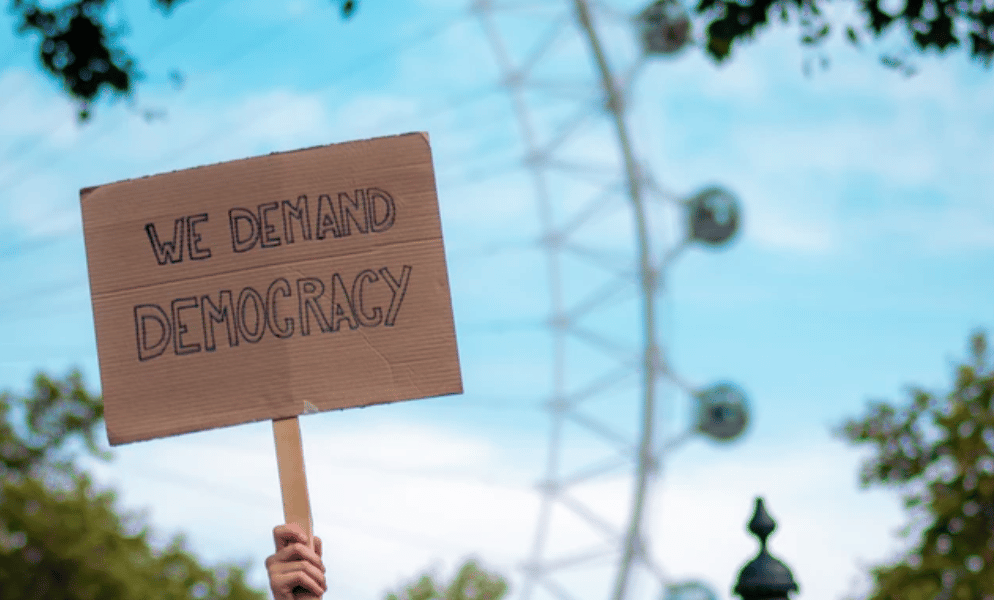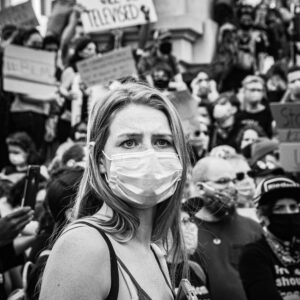The impact of extreme weather on human beings used to be called natural disasters. In the 21st century we now know there is nothing natural about them. Scientists predict Summer 2022, like those before it, will include severe weather events more often and a little worse than last year. This means potential heat waves, flash flooding, and “microbursts” – highly localized episodes of severe wind or rain. Extreme weather is the result of rapid climate change caused by human activity; especially the production of energy by the burning of fossil fuels.
When an August heat wave threatens the health of old people, people with respiratory problems, and small children, the real culprit is not “the weather.” It is rapid climate change, poverty, a privately run electrical system. All three are the product of profit-driven systems that can be changed – and that must be changed for human beings to survive. While many of us are concerned about extreme weather, Hartford residents face another pressing reason for change: a 21% increase in their electric bill in January and yet another 5% increase scheduled for July 1.
Many of the big picture changes that are needed must happen at the national and international levels. For example, the U.S. military continues to be the single largest consumer of fossil fuels in the world, and therefore one of the biggest contributors to global warming.
But so long as control of the production and distribution of energy is in the hands of people who make money from it, even the most well-intentioned decision-making will be shaped by corporate profits. Electrical energy purchasing and distribution in most cities and towns in Connecticut are controlled by Eversource (Northeast Utilities changed its name and adopted its current “green” logo in 2015), while United Illuminating is the provider for two of the state’s biggest cities, Bridgeport and New Haven. In addition to these major players, however, seven Connecticut communities, along with one of the state’s tribal authorities, maintain municipal-controlled electrical utilities.
One way of effecting real change would be to put more energy decision-making in the hands of communities instead of corporations. Some Connecticut communities already have such a vehicle for change that could serve as a model.
Norwich Public Utilities is one of those municipally owned utilities, providing electric, water, and sewage treatment services to the residents and businesses of the town. The utility pays 10% of its revenues each year (its “profit”) to the Town of Norwich. Norwich Utilities operates under the direction of a commission appointed by the Town Council. The communities that have municipally-owned utility companies have the ability to support alternative energy development through their purchasing power as well as through local planning. These municipal entities are also able to more efficiently pool their resources through regional cooperatives not only to purchase electricity, but to advocate for the people of their communities.
Universal access to electricity is more than a convenience; it is an every day necessity that, especially in extreme weather conditions, can be a life or death determining resource. Something so critically important cannot be left to private control, existing to profit corporate shareholders while its product is rationed out to only those that can afford it. Replacing companies like Eversource with publicly-owned, community-controlled utilities is an important step in the re-creation of democracy.
With democratic control of utilities it becomes possible for communities to ensure that vulnerable populations – young children, seniors, and people dealing with illness or disability – always have access to heat in the winter and cooling in the summer. Revenue currently taken in the form of private profits can instead maintain the existing infrastructure, develop new resources, and drive down costs. The demands of ordinary people for the system to address climate change can then scale from local to regional to national decision-makers.
In the United States we tend to view “democracy” as something that comes from voting once a year. Public control of utilities can be part of a new, direct democracy that gives communities more power over systems that affect our everyday lives and more of a say over systems that determine the future of our planet.
Peter Goselin has practiced labor and employment law in the Hartford area for more than 25 years. He is a member of the Connecticut chapter of the National Lawyers Guild and a co-chair of the Green Party of Connecticut.






